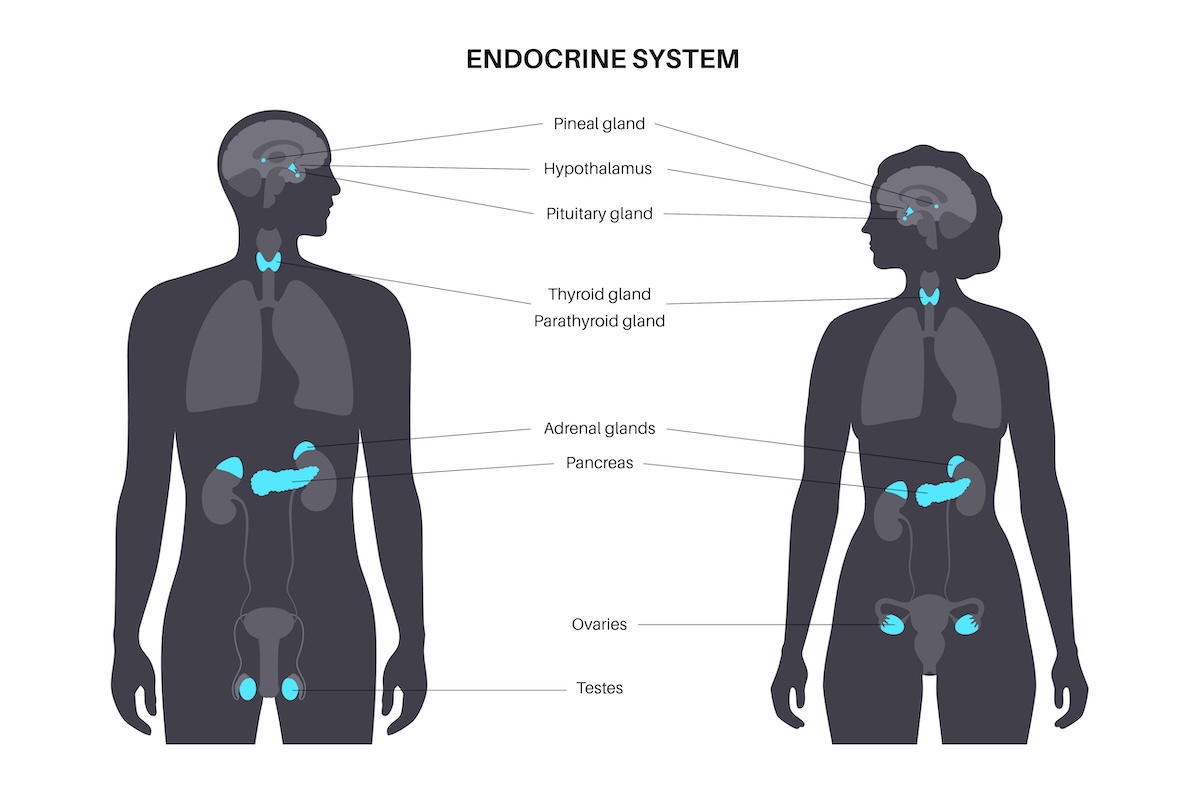Discover the Power of Hormones
Understanding Your Endocrine System
The Vital Role of the Endocrine System
Primary Functions of the Endocrine System
Key Glands in the Endocrine System
Hypothalamus: The Control Center
Pituitary Gland: The Master Gland
Thyroid Gland: Metabolism Regulator
Parathyroid Glands: Calcium Balance
Adrenal Glands: Stress Responders
Pancreas: Blood Sugar Manager
Testes: Male Reproductive Hormones
Ovaries: Female Reproductive Hormones
Thyroid Hormones: Metabolic Control
Adrenal Hormones: Stress Management
Pancreatic Hormones: Glucose Regulation
Pituitary Hormones: Growth and Reproduction
Reproductive Hormones: Development and Function
Feedback Loops: Hormone Regulation
Neural Control: Hypothalamus Functions
Understanding Feedback Loops
Step 1
Step 1: Hormone Detection
Step 2
Step 2: Signal Transmission
Step 3
Step 3: Hormone Regulation
Research indicates that the Western diet, which is largely made up of refined sugars and animal products, correlates with elevated estrogen levels, a known risk factor for breast and ovarian cancers. Conversely, adopting a Mediterranean diet that emphasizes whole grains, fish, and cruciferous vegetables may help lower estrogen levels and reduce cancer risk. Hormones play a critical role in every facet of your health, requiring precise balances for your body to operate at its best. Hormonal imbalances can heighten your susceptibility to obesity, diabetes, heart disease, and various other health issues. While aging and other hormone-affecting factors may be out of your control, there are proactive measures you can take to manage your hormone levels. Eating a nutritious diet, exercising regularly, and participating in health-enhancing activities like meditation and ensuring adequate sleep can significantly improve your hormonal well-being. Incorporating high-quality natural fats into your diet may assist in reducing insulin resistance and controlling appetite. Medium-chain triglycerides, or MCTs, are distinct fats less likely to be stored in adipose tissue and more readily utilized by the liver for immediate energy, thus enhancing calorie expenditure. Healthy fats, such as omega-3s, can boost insulin sensitivity by mitigating cortisol spikes during stress. These beneficial fats are found in pure MCT oil, avocados, almonds, peanuts, macadamia nuts, and fatty fish. Prioritizing consistent, high-quality sleep is vital for optimal health. Regardless of how nutritious your diet is or how dedicated you are to exercising, adequate restorative sleep is essential. Poor sleep has been linked to hormonal imbalances, affecting insulin, cortisol, leptin, ghrelin, and HGH levels. Furthermore, your brain requires uninterrupted sleep to cycle through all five stages of sleep, which is crucial for the release of growth hormone that primarily occurs at night during deep sleep. To achieve optimal hormonal balance, aim for at least seven hours of quality sleep each night. Additionally, a high-fiber diet is fundamental for maintaining health. Research has demonstrated that fiber enhances insulin sensitivity and triggers the secretion of hormones that promote satiety. While soluble fiber tends to have the strongest impact on appetite regulation through increased fullness hormones, insoluble fiber also contributes. Aim to include a variety of high-fiber foods each day, such as avocados, beans, and nuts.
Understanding hypoglycemia is essential for maintaining your well-being, especially if you manage diabetes or use insulin. This condition manifests when blood sugar levels dip below the normal threshold, leading to unsettling symptoms like shakiness, confusion, and fatigue that can disrupt your daily life. Quick action is vital—consuming fast-acting carbohydrates can swiftly restore balance and provide the energy you need to feel like yourself again. By keeping a proactive approach and familiarizing yourself with the signs of low blood sugar, you can navigate your health journey with confidence and resilience, ensuring you’re always ready to embrace life’s opportunities.
Healing Foods:
Fruits and Vegetables: Apples, cherries, grapefruit, plums, raw beets, broccoli, cabbage, cauliflower, raw carrots, Dru, some artichokes, leafy greens, and tomatoes.
Herbs: Dandelion root, German chamomile, ginseng, licorice,
Other Healing, Foods: grasses, flaxseeds, kelp, legumes, nuts, seeds, spirulina, whole grains, kefir with active bacterial cultures.
Healthy fruits and vegetables include apples, avocado, avocados, blueberries, grapefruit, lemons, limes, pears, broccoli, Jerusalem, artichokes, leafy, greens, and onions
Beneficial herbs include cinnamon clove, coriander, dandelion root and leaf, evening primrose oil, fenugreek seeds, garlic, ginger, ginko, linden flour, stevia, turmeric, and yarrow.


